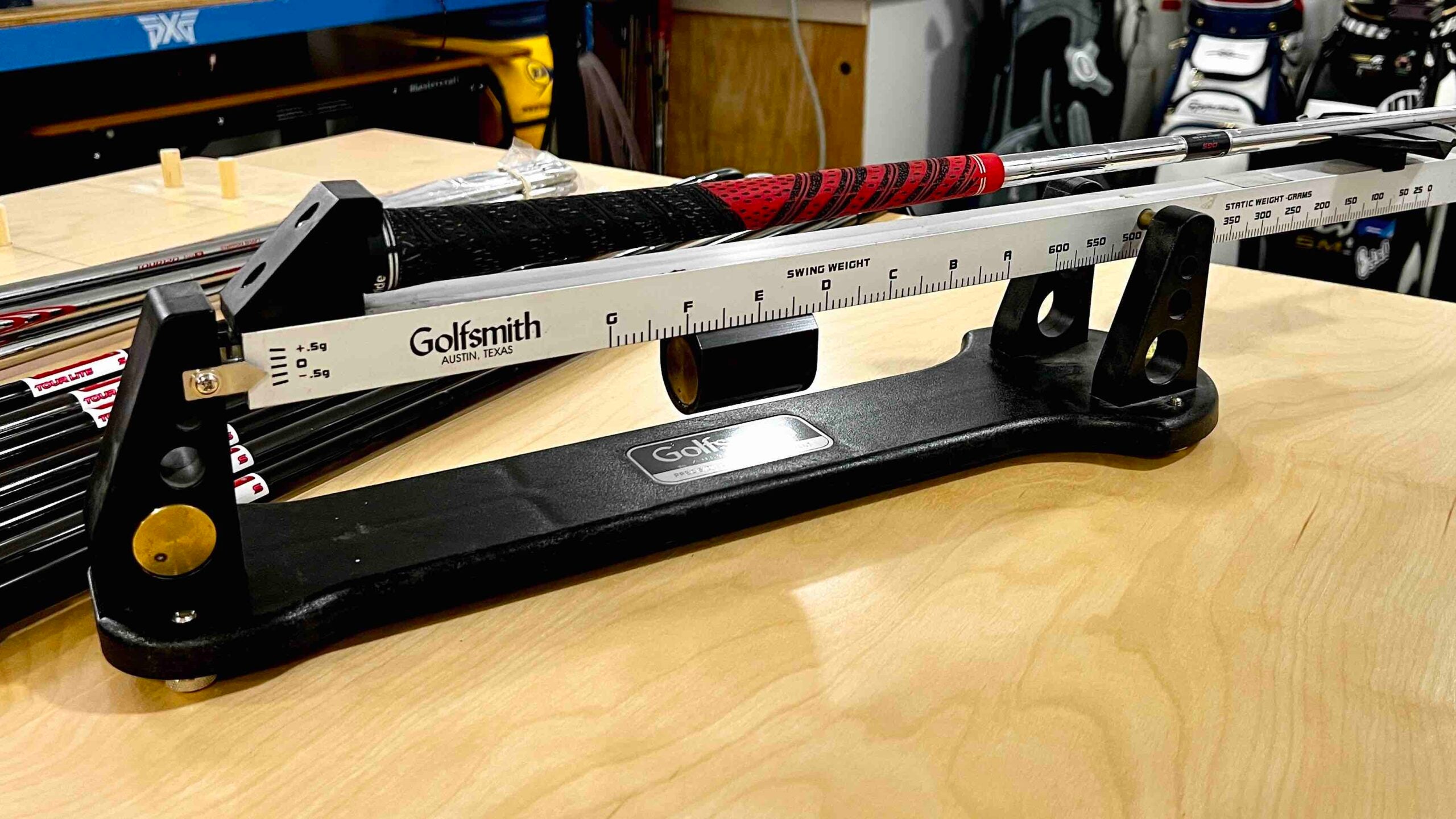Welcome to GOLF’s “Firsthand with a Fitter” series, where with the help of True Spec Golf we dive into some of the most common questions golfers have about club fitting, issues they struggle with on the course, and how properly fit equipment can help fix those issues and make the game easier.
This week we are going to dive into one of the most commonly misunderstood topics when it comes to golf clubs, specs and fitting — Swing weight. What is it, what should yours be, and can it be a part of your fitting to help your clubs perform better?
What is swing weight?
Swing weight is a value used to describe to how mass is distributed along the entire length of a golf club using a swing weight scale, which measures the club using a fulcrum position 14″ from the grip end of the club.
The scale values range from A-G and also have a number assigned to the letter value — A0-9, B0-9, C0-9, and so on — with A0 being the lightest measured value and F9 being the heaviest. Although it’s possible for clubs to register higher than G0, it becomes a much less practical measurement in regard to golf club specs, so the scale ends there.
The average swing weight of a full-swing golf club off the rack ranges from C8-D5. With modern putter heads treading heavier than 350 grams, putter swing weights are in the E and F range depending on the grip and length.
Swing weight originates back to when golf clubs still used wooden shafts. It was intended to help golf club builders match clubs through so golfers could feel the same from club to club. It just goes to show that even before the days of steel shafts and investment cast heads, golfers and the people who built their clubs did everything they could to reduce inconsistencies.
The Premier Club Fitting Experience
Determining the right swing weight
This is where things can get interesting because, unlike specs that can be quickly determined by ball flight like lie angle and loft, swing weight requires targeted feedback from the player getting fit. At that point, it is the job of the club fitter to help translate what the golfer feels into something that can be understood and adjusted to fit their need to create consistency.
“When working with golfers, it’s the job of the fitter to always be asking questions to best understand how the player perceives the mass of the golf club,” says Kris McCormack, VP of Tour and Education at True Spec Golf. “Depending on the components used in a particular build during the fitting process, not only will the total club mass change (static weight), but the swing weight will change too. These specs can have a big effect on a player’s release pattern and we want to find the values that best match up to every individual.”
Since every golfer has a different level of strength and speed this communication process with a fitter is important because every golfer feels and needs something different.
“Feel is entirely subjective, and it is the role of the fitter to find out how any individual club feels to that player and also ask about the amount of effort they are putting in to make that club work,” McCormack said. “A club that is either too heavy or too light might cause a player to compensate for the mass of the club, and we don’t want to have a player make compensations. Once a golfer finds the right swing weight range, we instantly see an improvement in dispersion and efficiency.”
How to fit for swing weight
Although a fitter has the added benefit of measured feedback from a launch monitor, the great thing about trying to find the best swing weight to match your golf swing is that if you’re curious about experimenting it can be something you can test without a fitter. With the help of adjustable weights in drivers and fairway woods, and also lead tape on irons, wedges and even putters (although you can only move in a heavier direction), you can experiment with finding what works and feels best for you.
Looking to work firsthand with your own club-fitting expert to dial in your equipment and play better golf? Book a fitting with the industry experts at True Spec Golf. With more than 40 locations, it’s easy to find a location near you.
For more on the latest gear news and information, check out our latest Fully Equipped podcast.
